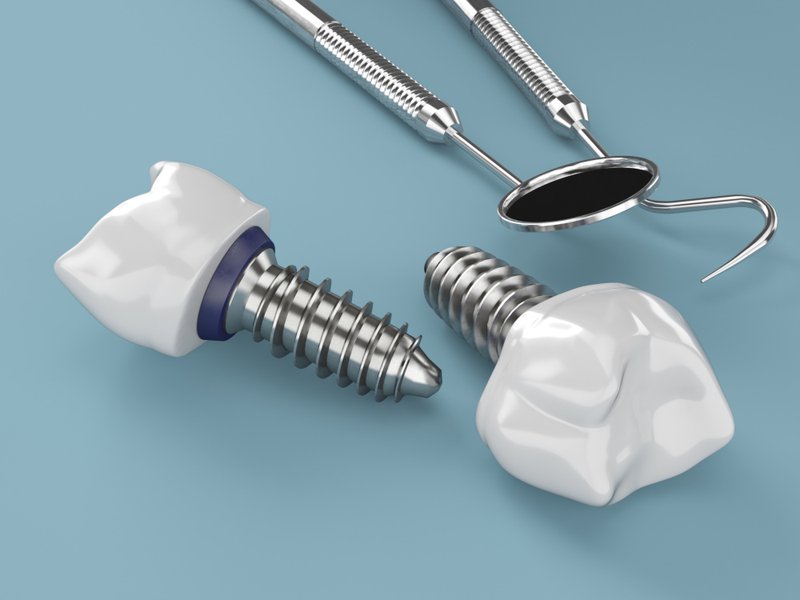
Dental Implants Recovery: What to Expect
Key Takeaways
Dental implants are a great solution for anyone with missing teeth. They restore functionality, look natural, and are built to last. Knowing what the recovery process looks like in advance is necessary for a smoother healing experience and the long-term success of your implant procedure. This guide describes the process of dental implant recovery so you know what to expect, what to do and not, and how to care for your new implants.
What Are Dental Implants?
Dental implants are man-made structures, usually made of titanium. They are designed to function like tooth roots. When they are surgically implanted into the jawbone, they gradually fuse with the surrounding bone. Then they can be utilized as a stable foundation for crowns, bridges, or dentures. The dental implant and the crown together become a great permanent replacement for your missing natural teeth.
Types of Dental Implants
- Endosteal Implants are placed directly into the jawbone. They are the most commonly used dental implants.
- Subperiosteal Implants are placed under the gum but above the jawbone. They are recommended for patients with low bone density.
Benefits of Dental Implants
- restore your ability to chew properly
- improve the clarity of speech
- prevent bone loss
- maintain facial structure
- last long with good oral hygiene habits and regular dental checkups

What to Expect soon after the Procedure
It is normal for mild discomfort, pain and minor symptoms to occur immediately after dental implant surgery. These are part of the natural healing process.
Pain Management
Your dentist may prescribe pain medication or recommend over-the-counter pain relievers to help you manage any discomfort or pain.
Common Symptoms
You can expect
- swelling around the implant site in the 48–72 hours after surgery
- minor bruising of the gums or face
- light bleeding
Week 1 Recovery: Early Stages
You should follow your dentist’s instructions, especially in the first week of recovery, for timely and proper healing.
Rest and Care Guidelines
- Avoid strenuous activities for a few days.
- Icing the cheek on the side where the surgery has been performed can help to reduce swelling.
- Keeping the head elevated while sleeping can help to reduce discomfort.
Diet Recommendations
Consume soft foods such as yogurt, mashed potatoes, and scrambled eggs. Hot or spicy foods might irritate the surgical site.
When to seek Medical Advice
Contact your dentist immediately if you experience any one or more of the following signs:
- Excessive swelling or pain.
- Persistent bleeding.
- Signs of infection like fever or pus.
Week 2–4: Healing Progress
Implant Site Healing
During this period, the implant begins integrating with the bone. Some tenderness may still be present, but swelling generally subsides.
Oral Hygiene
- Brush gently with a soft-bristle toothbrush.
- Avoid the surgical area while rinsing with a dentist-recommended antimicrobial mouthwash.
Follow-Up Visits
During regular checkups, your dentist can make sure the implant is healing properly. In case they spot signs of any concerns, they can address them promptly.

Long-Term Healing: 3–6 Months
This is the most critical phase of recovery. Osseointegration occurs during these weeks. this is the process in which the implant fuses with the jawbone.
What happens during Osseointegration
Osseointegration provides the stability required for the implant to function like a natural tooth. During this time, you likely won't feel any discomfort. Many patients forget they even have an implant placed.
Tips for Maintaining a Healthy Implant
- Floss daily with dental floss or an interdental brush.
- Avoid clenching or grinding your teeth. If you suffer from bruxism, wear a night guard.
Lifestyle Adjustments During Recovery
Activities to Avoid
- Smoking slows down natural healing, so avoid it as far as possible.
- Avoid lifting heavy objects or vigorous exercise during the first few weeks following surgery.
Oral Care Routine
Develop a healthy oral hygiene routine to prevent any infections and promote healing.
Nutrition and Recovery
Consume foods rich in vitamins A and C, zinc, and calcium to support tissue repair and bone health.
Signs of Complications and When to Contact Your Dentist
Most dental implant recoveries are event-free, but complications may occur in rare cases.
Warning Signs
- Severe pain or swelling that doesn’t improve.
- Implant mobility.
- Signs of infection like redness, warmth, or discharge.
Importance of Regular Checkups
Routine dental checkups allow your dentist to detect and address any potential issues early. This ensures your implants last a long time.
Dental Implants at Mapleridge Dentistry
The team at Mapleridge Dentistry specializes in creating confident, healthy smiles with personalized treatment and care. Our team ensures that you experience smooth and comfortable dental implant surgery recovery.
"Dental implants have revolutionized restorative dentistry. We focus on patient education and care to make the recovery process smoother," says Dr. James Ko, one of our leading dental professionals.
From consultation to follow-ups, our team is here to guide you every step of the way. Request a FREE consultation to explore the life-changing benefits of dental implants.
FAQs: Common Questions About Dental Implants
Q: What is the average dental implant recovery time?
A: Initial healing takes about 1–2 weeks. Full recovery may take up to 6 months, including osseointegration (the implant integrates into the jaw bone).
Q: Is the procedure painful?
A: Most patients report minimal discomfort, which can usually be managed with over-the-counter or prescribed medication.
Q: How long does tooth implant recovery time last?
A: Recovery time varies depending on the individual and the complexity of the procedure. Most patients are able to resume normal activities within a few days.
For more insights, visit Mapleridge Dentistry’s Blog.

